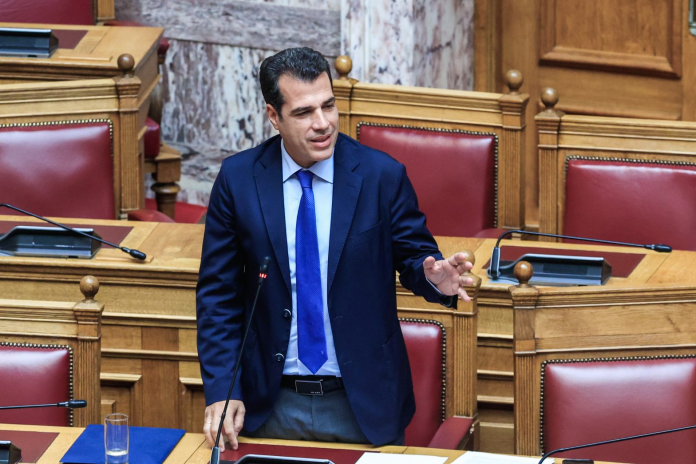Greece’s newly appointed Migration Minister Thanos Plevris declared a radical “disincentive-based policy” targeting migrants, including slashed benefits, downgraded camp meals, and criminal penalties for rejected asylum seekers who remain in the country, according to Politico.
The measures coincide with a parliamentary vote on an amendment to suspend asylum processing for arrivals from North Africa and permit forcible returns without registration, a move human rights authorities warn violates international law.
The government’s amendment, debated late Thursday, seeks a three-month suspension of asylum applications for those arriving by sea from North Africa, enabling immediate returns to countries of origin without procedural safeguards.
This follows an unprecedented surge of 9,000 migrants from Libya landing on Crete in recent weeks, with 2,000 recorded last weekend alone.
Plevris framed the crackdown as necessary amid overwhelmed facilities, telling Skai TV:
From now on, the government will follow a policy of drastically reducing benefits. Among other things, I have asked for a review of the menu, which is given to the camps, which is hotel-like at the moment.
He criticised current provisions offering “three meal options, four times meat and one fish,” stating that the Migration Department “is not a hotel.”
Parallel legislation proposes prison terms up to five years for asylum seekers remaining after rejection, unless they depart voluntarily. The ministry is also considering extending detention periods for migrants to five years.
The Council of Europe’s Human Rights Commissioner, Michael O’Flaherty, urgently called on Greek lawmakers to reject the asylum suspension amendment.
This proposal would legalise returning people to face a risk of torture and other serious violations, in breach of obligations under the European Convention on Human Rights.
O’Flaherty emphasised that the crisis stemmed from governmental neglect, saying that “the humanitarian situation would be manageable if authorities had addressed the lack of reception capacity in a timely manner.”
Greece’s actions align with hardening EU migration policies but test legal boundaries. Foreign Minister George Gerapetritis recently visited Benghazi to discuss migration with Libyan commander Khalifa Haftar, while Greek warships patrol Libya’s coast.
The “disincentives” strategy echoes UK approaches under its Illegal Migration Bill, which similarly restricts asylum claims and heightens detention powers.
